
Under the best of circumstances, we look to our colleagues for inspiration, ideas, and kinship. When an unprecedented pandemic takes root, that mutual sharing and support becomes absolutely critical. These 10 Colorado restaurateurs, chefs, wine experts, and activists have stood out this last year in many ways: through their unflagging energy, dedication to staff, commitment to clientele, innovative ways of keeping the lights on, and advocacy for their local hospitality communities. They are the ones who charged into the pandemic head-on, making bold moves and bold demands, and emerging as a new generation of leadership in the industry.

Sarah Gartzman, owner and baker, Sweetie’s Sandwich Shop and The Biker & the Baker, Salida
It’s a good thing Sarah Gartzman loves baking bread in the middle of the night, as that was some of the only quiet time she’s had in the past year. She and her husband, Rob, had just begun an ambitious DIY renovation of a historic building—a new home for both their restaurants—when the pandemic struck. Though it would have been easy to hit pause on food service altogether, the couple kept Sweetie’s (a popular lunch spot where many items are made from scratch) open, both to feed the community and to keep paying their staff of 22.
They did more than stay open. Salida offers few delivery options, says Gartzman, so she distributed sandwiches daily, her two young kids in tow. The couple brought a smoker from home for monthly barbecue takeout dinners and increased donations of leftover bread and pastries. They paid employees with a runny nose or cough to stay home. And if they had to forego profits some weeks to maintain payroll, they took the hit. “We felt it was really important to lead with intention and show up for our staff,” says Gartzman. Through it all, she and Rob didn’t take a day off.
The renovation wrapped in December, and both restaurants (the Biker & the Baker was only closed for a few months of 2020) relocated to the larger, modernized space. And Gartzman could exhale, if only for a moment.
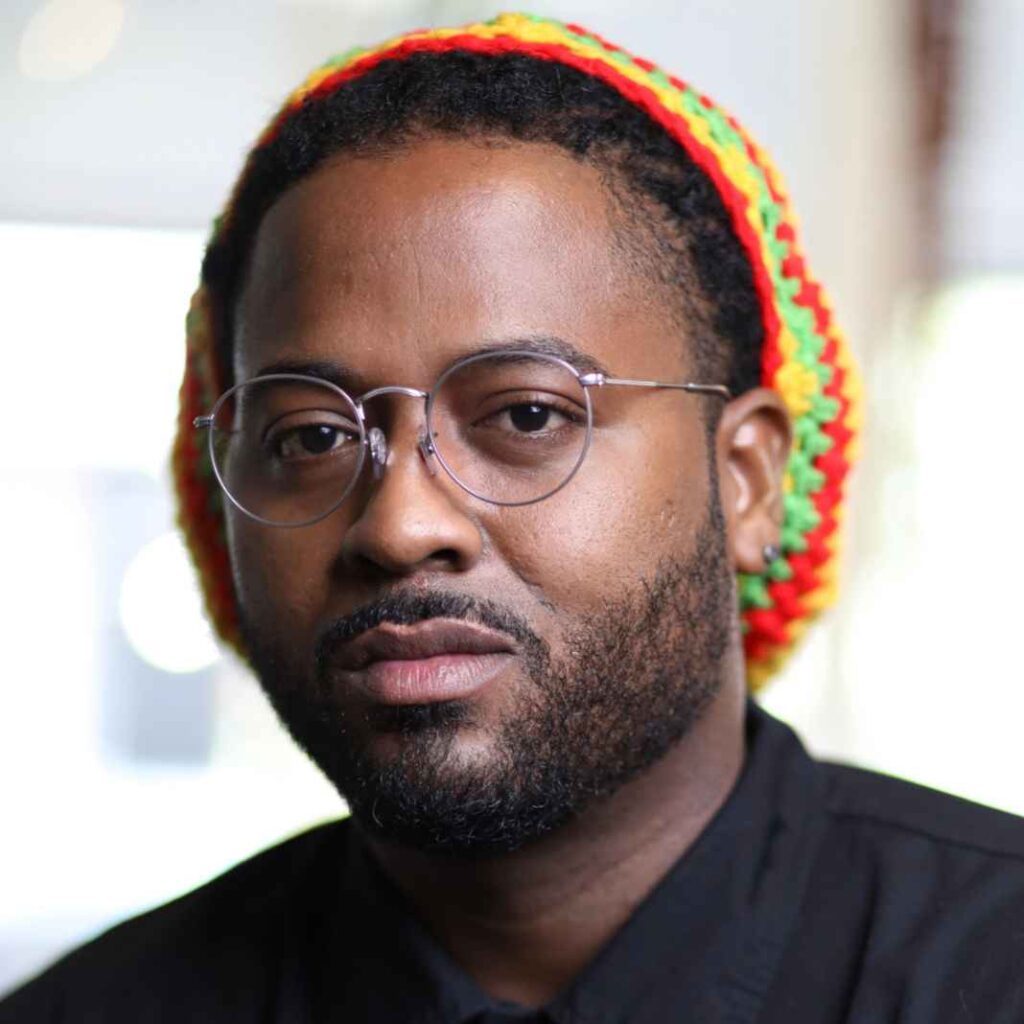
Tajahi Cooke, owner and chef, Ms. Betty’s Cooking, Denver
Like many in the industry, Taj Cooke has a basic mission: to feed people. But what sets this Jamaican-born 32-year-old apart is his infectious energy and passion for community.
Last fall (after a short stint chefing at Biju’s Little Curry Shop before the restaurant’s February 2020 closure), Cooke helped organize six weeks of pop-up “advocacy” dinners at Kelly Whitaker’s Brutø. These events showcased guest chefs, their chosen social causes, and local farms. Now he’s launched a monthly supper club series with activation collective Fireside at Five that includes options to dine in, take out, or order ingredients and virtually cook alongside that night’s featured chef.
And then there’s Cooke and wife Danielle’s Madsgiving. What started as a neighborly meal share in 2009 grew by 2020 to almost 7,000 free holiday dinners in Denver and wild fire–ravaged Grand Lake, thanks to donated ingredients and kitchen space, a slew of volunteers, and Cooke’s can-do attitude. This year, he aims even higher, hoping to recruit the help of other restaurants and to provide 100,000 free meals across the state. “2020 woke us all up,” he says. “I wanted to show support to the community, and the only way I know how is to feed people. When we focus on each other, so much good can come out of it.”
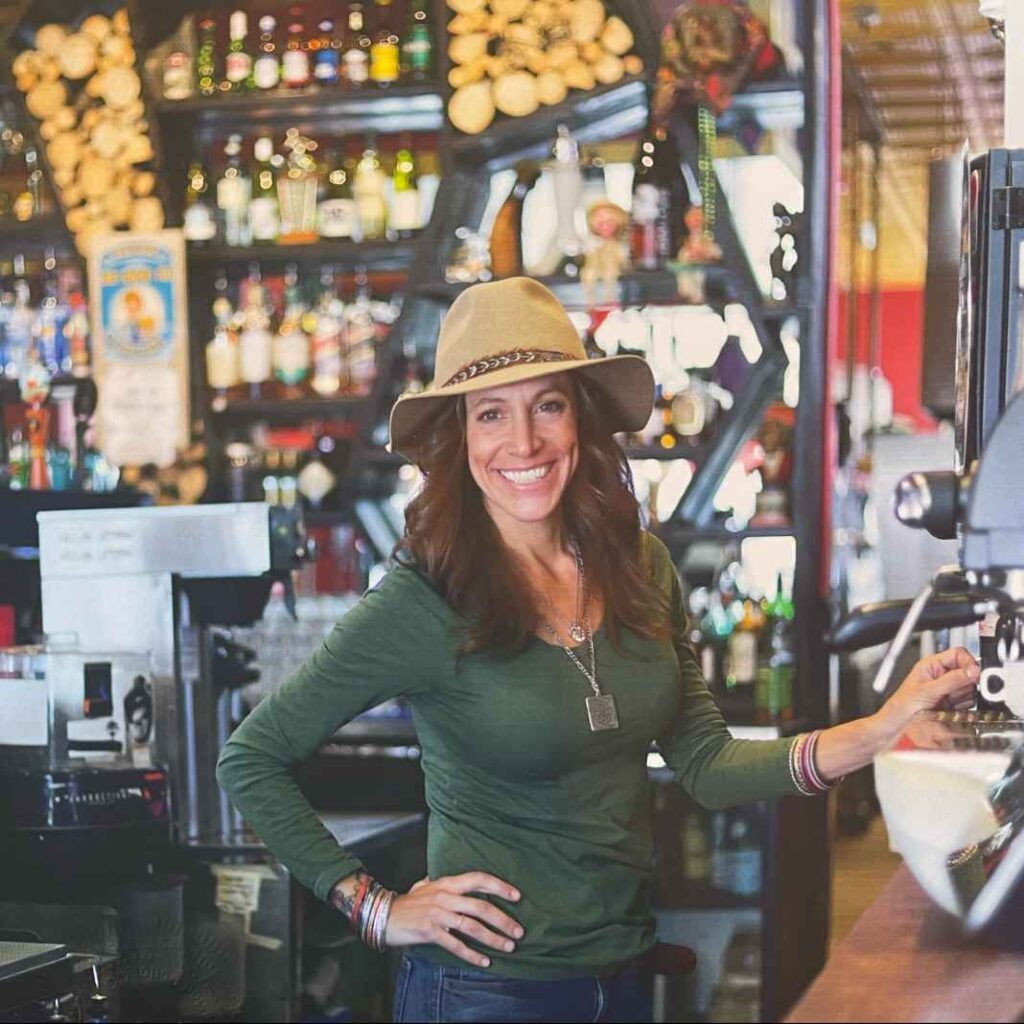
Kyleena Falzone, owner, Secret Stash and Bonez, Crested Butte
Kyleena Falzone is the kind of dynamo you want on your side, crisis or no. Over the past year, she’s become as much a philanthropist as a restaurateur. When she started offering make-at-home pizza kits from Secret Stash (and eventually taco and enchilada kits from Bonez), not only did customers buy them individually, but local businesses purchased them by the dozens for clients.
That inspired Falzone to make social media asks for meal-kit sponsors. “I had to hire an assistant to help me,” she says of the response, which netted $100,000 and provided meals for locals for 83 consecutive days. She also donated some of the money to a different Crested Butte business each week.
Falzone held a free farmers’ market for 14 weekends, powered by food and cash donations from Shamrock Foods, as well as individual contributors. “I really wanted to get fresh fruits and vegetables to people who couldn’t buy groceries,” she says. And she launched Stash Cash, a fund administered by the Community Foundation of the Gunnison Valley, to support causes like a local mental health nonprofit.
After a 2014 bout with cancer provided Falzone “a crazy wake-up call,” her preferred mode is full steam ahead, whether she’s continuing to raise money, looking to expand the popular pizza venue to other locations, or taping her new Secret Stash podcast to inspire others.
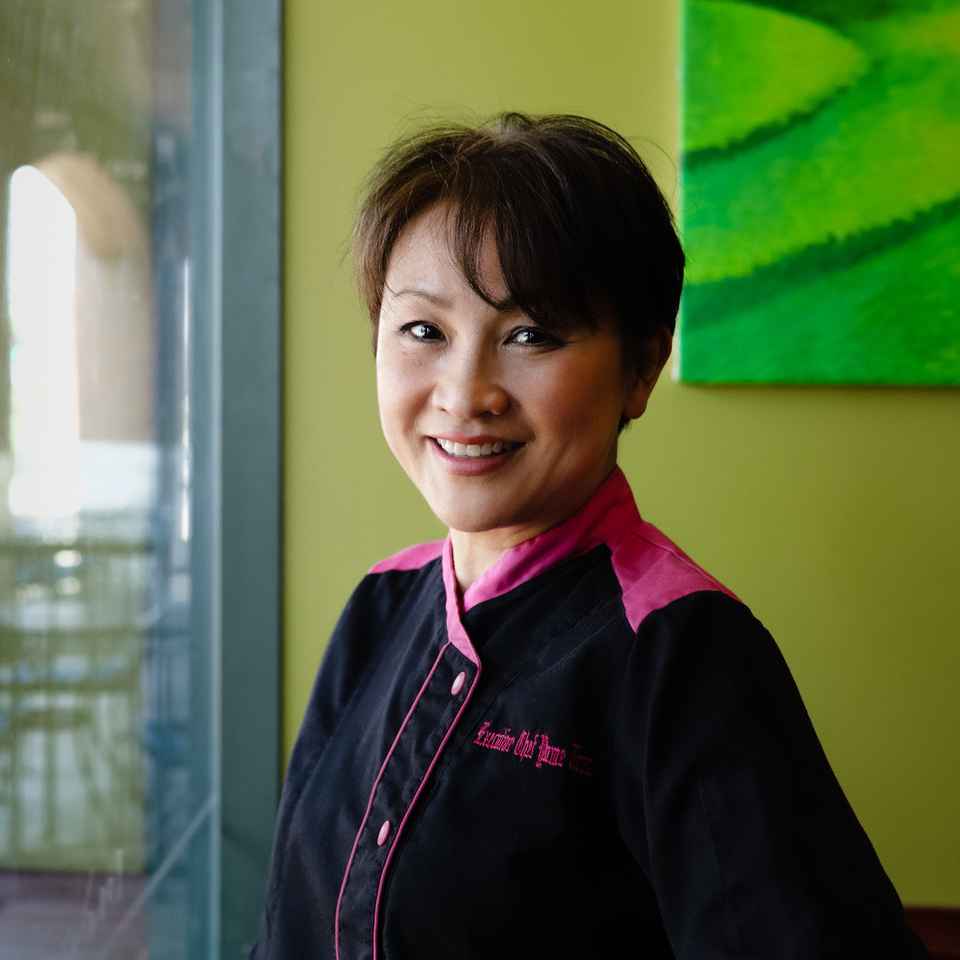
Yume Tran, owner, Indochine, Parker
Yume Tran has been called the unofficial mayor of Parker, with good reason. She’s been offering Thai food and dishes from her native Vietnam for the past 18 years and attributes her restaurant’s longevity to relationship building and great customer service, elements that have allowed her business to unexpectedly thrive during the past year.
As COVID took hold, Tran used Facebook Live to talk about Indochine’s transition to takeout, its extensive safety precautions, and to share a half-dozen cooking lessons (ideally using the restaurant’s own bottled sauces). She and her team devised systems to efficiently prepare and package to-go food, fulfilling as many as 70 multi-dish orders in three hours on some days. A new grab-and-go case temporarily provided smaller, more affordable items like spring rolls, “sushiritos,” and fried rice. “We were pivoting within the pivot within the pivot,” Tran laughs.
Additionally, she continued to mentor Indochine’s young front-of-house staff, teaching them life skills like accountability and financial acuity (“I make people open a Roth IRA,” she says).
The surge in takeout and delivery resulted in a 26 percent increase in revenue last summer, and the upward trend has continued. “Our customers already trusted us before the pandemic,” says Tran. “Now they trust us even more.”
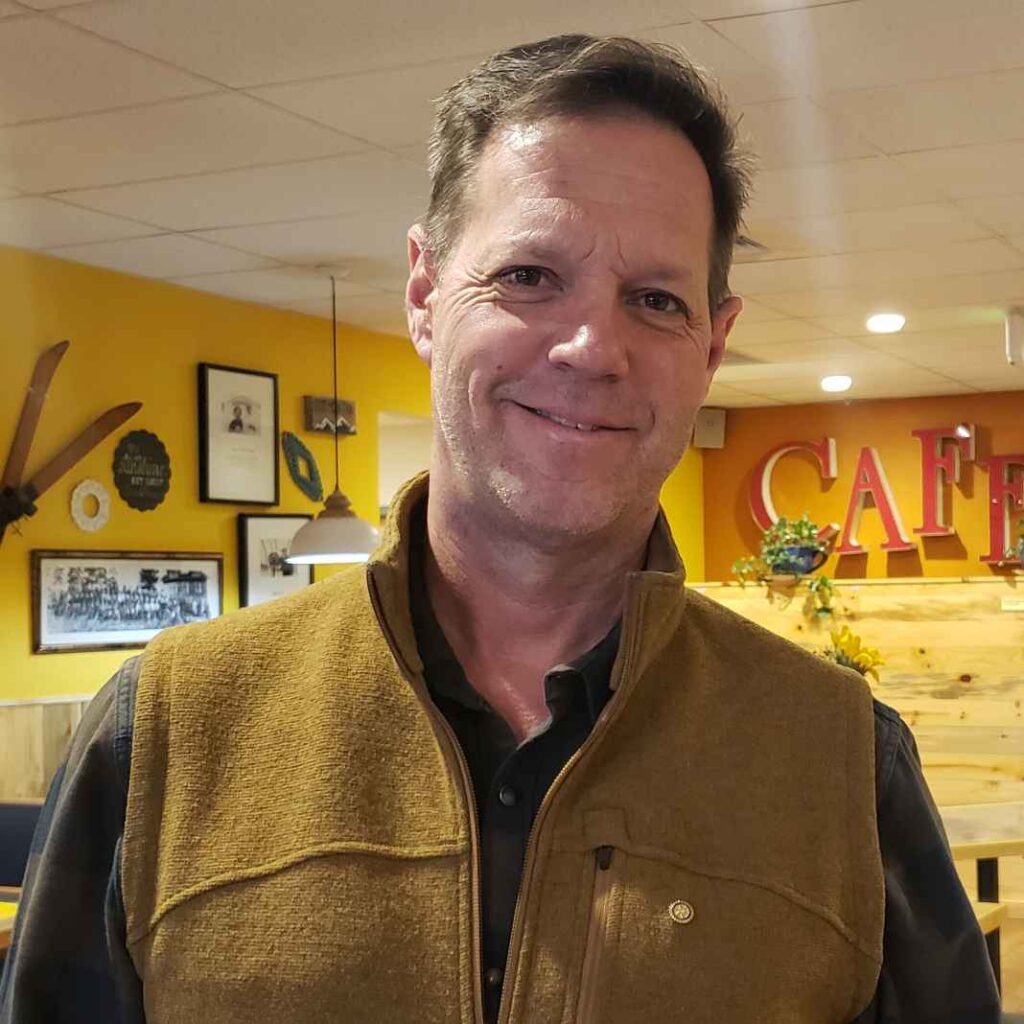
Michael Spry, owner, Sunshine Café, Silverthorne
Michael Spry makes no bones about the pandemic-related challenges he and other Summit County restaurateurs have faced over the past year: “It’s been horrible,” he says. Additionally, his cafe’s shopping center location limits outdoor dining options, and the breakfast mainstays don’t translate well to takeout, so he’s been working extra hard to keep his staff afloat. But the former PepsiCo exec also leverages his Silverthorne Town Council seat, plus his role as chair of the Summit Chamber of Commerce’s legislative affairs committee, to advocate for small business.
One recent idea: seeing if Xcel Energy will give a break to smaller commercial outfits impacted by COVID. After learning about such a program in Minnesota, Spry encouraged his state legislators to propose the concept to the Colorado Public Utilities Commission. “As a business owner, you’re never going to get anything unless you ask,” he says. (As with all things governmental, it’s a slow process, but the proposal is chugging along.)
Spry also worries about adequate hospitality staffing when tourism once again surges, given the current dip in the number of seasonal employees. “Do we first shift our tourism marketing dollars to ‘come live here and work here’ campaigns?” he muses. Whatever the solution, it’s a safe bet that Spry will be on the front lines of exploring options.

Brian Nolan, owner, Blue Moose Pizza, Vail and Beaver Creek
For any restaurant community, having a steady, seasoned member as an advocate is vital; amid the changes and challenges of a resort town, it’s even more so. Brian Nolan, who’s run his popular pizza joint in Beaver Creek for 27 years (and one in Vail for 12) fills that role in the upper Vail Valley.
Last fall, Nolan and a few colleagues started an email string of 100 or so restaurateurs to discuss the upcoming winter. One idea everyone rallied around, he says: outdoor dining tents. After convincing the Town of Vail and Beaver Creek Resort Company to fund the rental cost, Nolan researched options (“It was my life for five weeks,” he quips) and arranged for two Colorado companies to supply tents. About half of local restaurants took advantage of the offer.
A year earlier, in a move that proved prescient during the pandemic, Nolan had successfully lobbied for revised language in a state measure regulating entertainment districts and common consumption licenses. The revision allowed Beaver Creek to roll out a plan for guests to imbibe more freely in the village center last summer—unexpectedly coinciding with the pandemic’s amped-up outdoor dining scene. The “wildly successful” concept was “all about the guest experience,” says Nolan, who’s now advocating for similar zones in Vail Village and Lionshead.
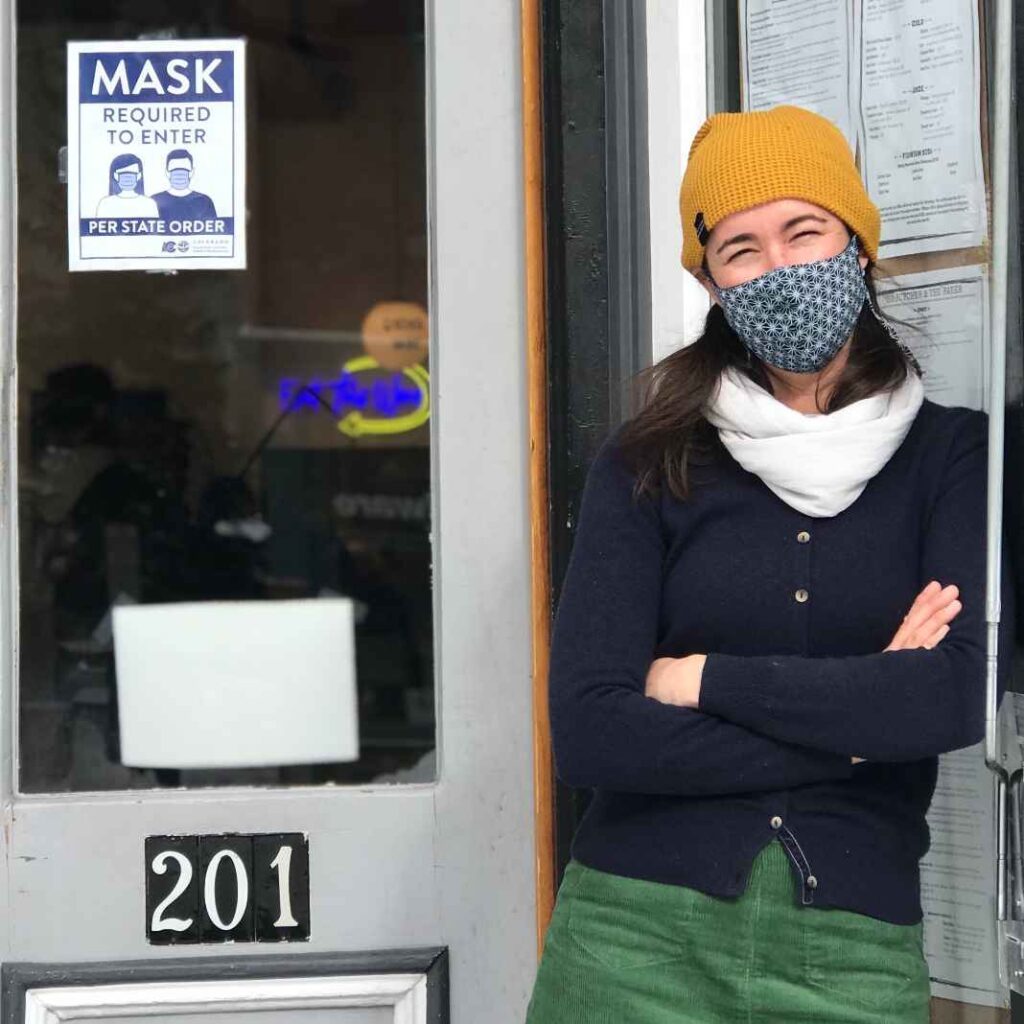
Megan Ossola, owner, The Butcher & the Baker, Telluride
In addition to keeping her own business afloat, Megan Ossola helps give local restaurants a much-needed voice at the community’s table. As president of the recently revived Telluride and Mountain Village Restaurant and Bar Association (a chapter of the Colorado Restaurant Association), Ossola leads the conversation on issues like convincing the county to maintain indoor dining last winter, refining this summer’s communal outdoor dining plan, and allowing open containers in the downtown area. The association also ensured restaurants could obtain variances for outdoor structures like yurts in an accelerated time frame.
More personally, Ossola has creatively honored her long commitment to farm-to-table cuisine and achieved her goal of keeping her staff of nearly 40 employed with an increased emphasis on retail and takeout. As grocery store shelves emptied last spring, the restaurant sold produce and meat from local farmers, as well as bags of house-baked bread and frozen cookie dough (“Things I never thought we would sell,” Ossola says).
Last summer, offerings included produce from Ossola and her husband’s own farm in Montrose (where they’re renovating the historic farmhouse for commercial use) and, as of this winter, family-style to-go dinners like lasagna and pot pie, plus evening delivery. The most unexpected revenue stream? Merchandise like beanies, sweatshirts, and baseball hats—they’ve been flying off the shelves.

Maia Parish, owner and sommelier, The Wine Suite, Denver
In many ways, Maia Parish is ahead of the curve. She was doing virtual tastings well before the pandemic set in, so switching to a fully online format in the past year was relatively seamless. She’s also long been social media savvy—Instagramming, blogging, podcasting, and doing live broadcasts to share her fresh, animated style of wine education. She’s a fervent advocate of reaching out to those the wine community has traditionally ignored, specifically people of color and women. “They’ve been there—nobody’s been talking to them,” Parish says.
Her wine events are no run-of-the-mill happenings, either. In February, she hosted two “Equality and Chill” pairing dinners with black winemakers from California in honor of Black History Month, and events in April will feature Latino winemakers and craft brewers. Tastings often include a third component like a spa day, painting, or knitting—and, always, music. And Parish’s Black Panther–inspired Night in Wakanda (October 9) celebrates South African wines and African tribes with a grand tasting, fashion show, marketplace, and performance by the Cleo Parker Robinson Dance Ensemble.
Longer term, Parish is planning a full-service, accredited wine school in Denver with a focus on female and minority candidates—all part of her mission to inspire a diverse new influx of experts to spread the gospel of the grape.

Elliott Toan, owner, Supermoon (formerly Arcana), Boulder
“In the restaurant industry, you learn how to look for the silver linings,” says Elliott Toan. The restaurant operator spent most of the last year finding them amid the devastation. First was instituting a much-appreciated, pay-what-you-can sliding scale for all of Arcana’s takeout orders during the pandemic’s early days. “It kept us feeling positive and purposeful,” he says.
Toan also partnered with Boulder-based nonprofit Conscious Alliance, which reached out to local schools to identify families in need; Arcana supplied 40 meals a day for the effort. Next was working with José Andrés’ World Central Kitchen, which paid Arcana $10 a meal to produce 700 to 1,000 meals weekly that were distributed around the area. “They saved us while allowing us to help others,” he says of the alliance, which ran for eight weeks.
Toan and his team also spent six months developing an efficient delivery service after a “seat-of-the-pants” effort early on. Now, three full-time drivers deliver not only for Toan’s restaurants (he has a stake in the tiki bar Jungle, too) but also other independent, hospitality-driven Boulder eateries.
In 2019, Toan and executive chef Samuel McCandless began formulating a new restaurant concept and looking for space. As they felt the desire to simplify things at Arcana during the pandemic, they realized the solution was right at hand. This May, Arcana will reopen as Supermoon, with a menu of unfussy, Asian-inflected food. Another silver lining found.

Alejandro Flores-Muñoz, owner, Stokes Poke, Combi Taco, and Fresco Food, Denver
As a DACA recipient, Alejandro Flores-Muñoz (who came to the U.S. from Mexico when he was seven) is committed to sharing what he’s learned in business through activism, mentoring, and other channels. In 2019, he successfully lobbied for changes that make it simpler for DACA recipients to obtain a Denver business license. He’s also written a book for entrepreneurs and started a podcast, Undocu Hustle. And he’s a governor’s appointee to Colorado’s Minority Business Office Advisory Council and board chair of Latinx advocacy group COLOR Action Fund.
Flores-Muñoz, 31, not only churns out ideas but also knows how to stay nimble. In 2018, the former political director and e-commerce retailer purchased the food truck Stokes Poke with a partner. They soon added catering and buffet-style pop-up lunch service at local businesses, and diversified into tacos.
When 2020 sales plummeted as people worked from home, Flores-Muñoz rented kitchen space for expanded delivery. He just opened his second venture, Combi Taco, in Denver’s new Cloud Kitchen complex. His latest project, Fresco Food, sells prepared meals via a smart refrigerator that automatically processes payment (à la Amazon Go). “If I can be a glimpse of inspiration to others,” says Flores-Muñoz, “I’m all for it.”
Talk to us! Email your experiences (and thoughts, opinions, and questions—anything, really) to askus@diningout.com.



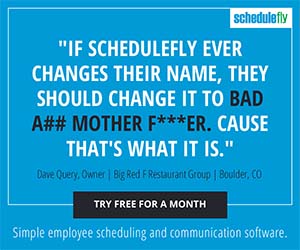
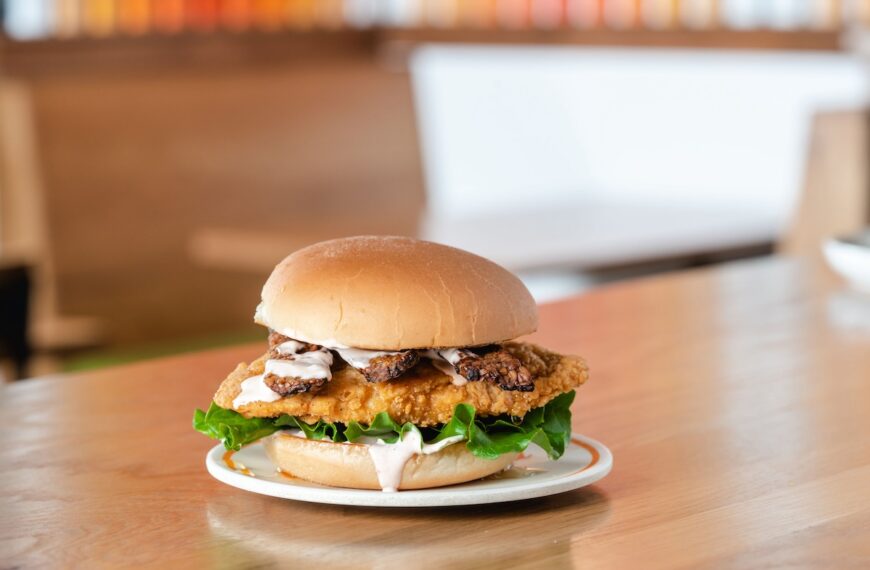
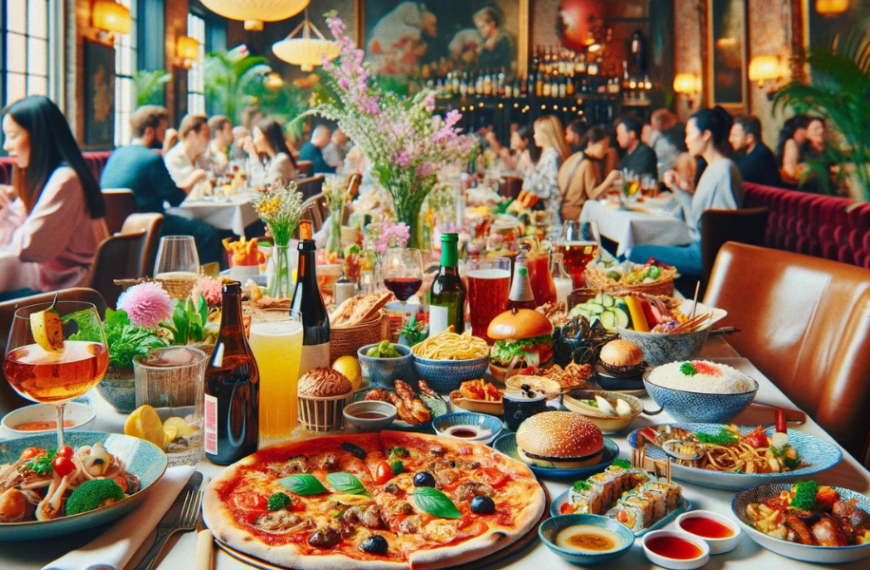
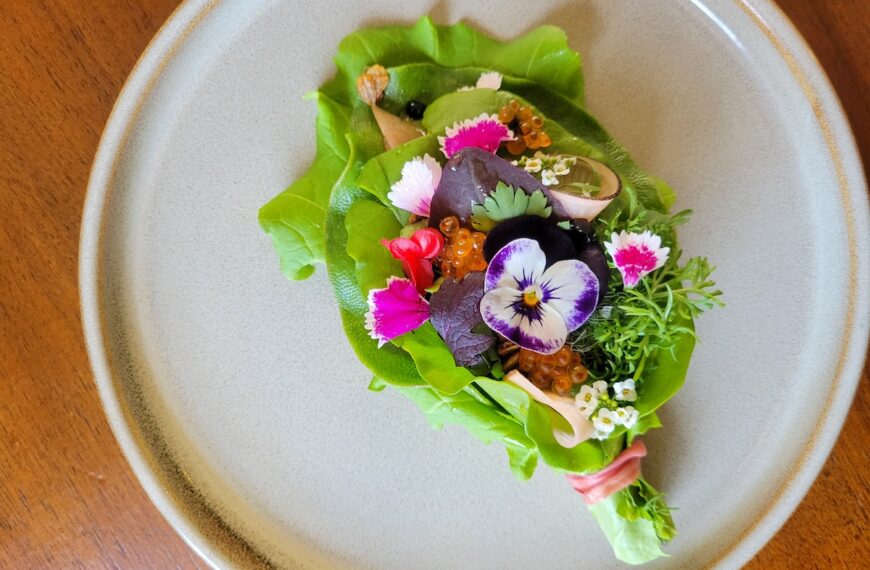
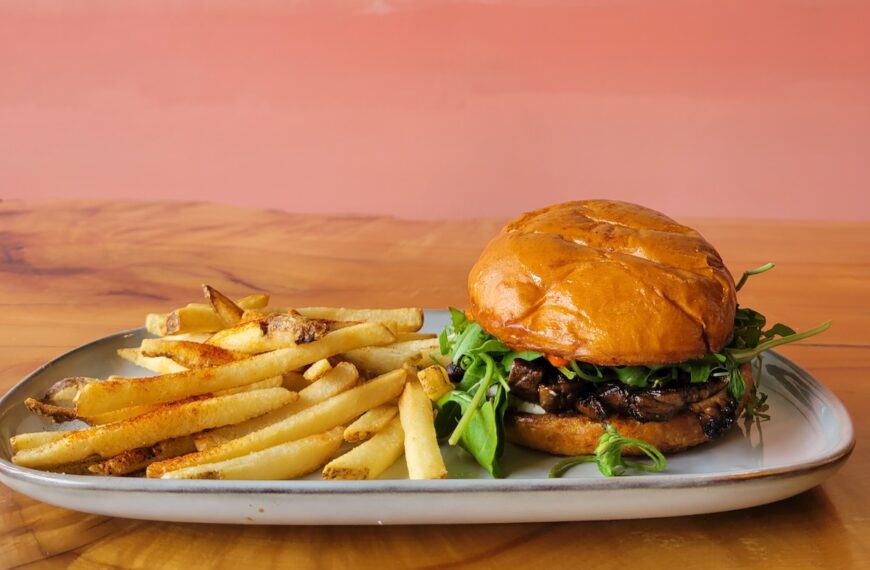
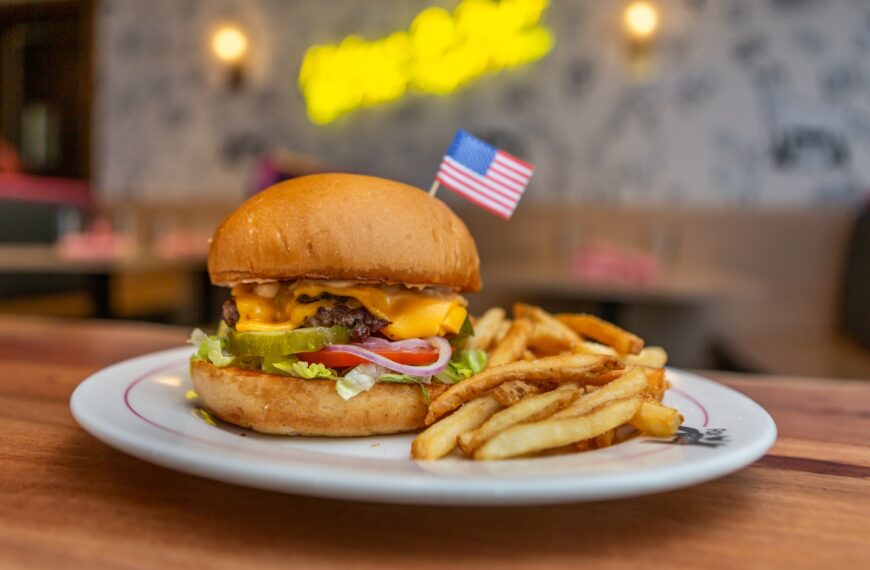



Comments are closed.